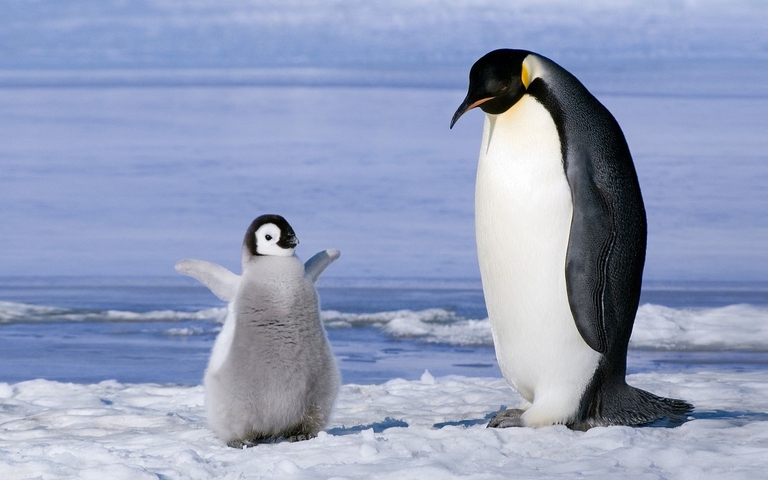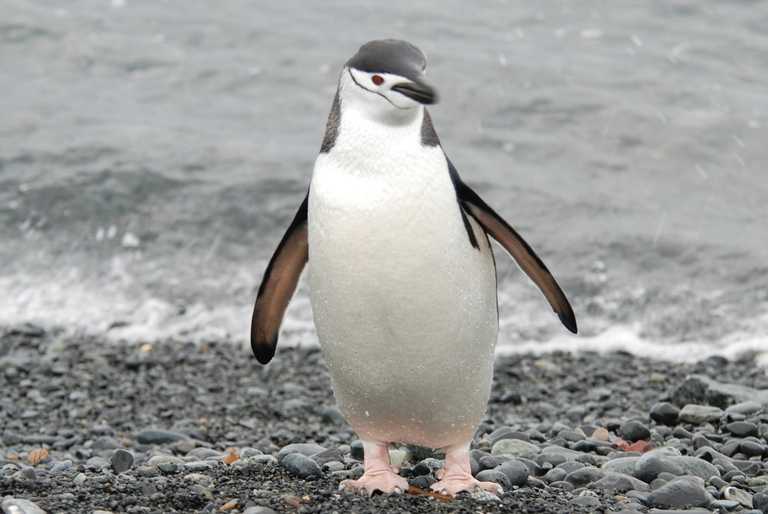
Our species took its first steps in a world covered in trees. Today, forests offer us sustenance, shelter, and clean the air that we breathe.
Finding someone who doesn’t like penguins is quite impossible. These birds – with their funny gait and impossibility of flying – inevitably trigger fondness. British scientists are relying on such liking to find volunteers to look at thousands of pictures of penguins. Researchers are trying to figure out the effective impact climate change has on penguin populations
Finding someone who doesn’t like penguins is quite impossible. These birds – with their funny gait and impossibility of flying – inevitably trigger fondness. British scientists are relying on such liking to find volunteers to look at thousands of pictures of penguins.
Researchers are trying to figure out the effective impact climate change has on penguin populations living in Antarctica. They installed 75 cameras in areas where penguins use to gather and in nearby islands, in order to understand what is happening to local populations. The amount of pictures taken by each device is so high that researchers are not able to fully examine them.
“We can’t do this work on our own,” said Tom Hart, researcher at the University of Oxford. “Every penguin that people click on and count on the website – that’s all information that tells us what’s happening at each nest, and what’s happening over time”.
Everyone can join the project, named PenguinWatch 2.0, in just a few simple steps: you need to sign in, look at the pictures and tag the penguins (adult, chicks, and eggs) in each photo. It’s an easy and fast procedure and you will also have the opportunity of chatting with other volunteers and the scientists themselves.
A penguin census has been carried out since 1994 allowing scientists prove that climate change led to a decline in numbers of Adelie penguins (Pygoscelis adeliae) and chinstrap penguins (Pygoscelis antarcticus), due to habitat loss and prey decline.
Besides, the project plays an important role in understanding what is happening in Antarctica in general, as penguins can be considered as “indicators” of environmental changes. “As top predators, penguins are considered sentinels of changes within their ecosystem,” reads the PenguinWatch website. “Because penguins spend the majority of their life in water and fall at the top of the food chain, any variations in their populations may represent larger changes to the dynamic Antarctic ecosystem”.
Siamo anche su WhatsApp. Segui il canale ufficiale LifeGate per restare aggiornata, aggiornato sulle ultime notizie e sulle nostre attività.
![]()
Quest'opera è distribuita con Licenza Creative Commons Attribuzione - Non commerciale - Non opere derivate 4.0 Internazionale.
Our species took its first steps in a world covered in trees. Today, forests offer us sustenance, shelter, and clean the air that we breathe.
Poachers in Africa are encroaching on wildlife land and killing rhinos in travel hot spots now devoid of visitors due to the coronavirus pandemic.
In 40 years, the Arctic will run out of ice during summer months, as proven by the lowest icecap winter extension ever registered by satellites last March. It is a phenomenon involving half of the Arctic ice. These are some of the effects caused by the on-going climate change, documented by WWF in
Actor and environmental activist Leonardo DiCaprio has contributed two million dollars to a fund to protect Virunga National Park in Congo from threats such as terrorism, the coronavirus and poaching.
For the first time in seventeen years, Iceland’s two main whaling companies won’t resume whale hunting. The announcement concerns this year’s season but could carry into the future.
The relationship between the coronavirus and wildlife is complex: while the pandemic may lead to a reduction in the illegal trade in wild animals, it may also encourage it in other respects.
The largest coral reef in the world is severely threatened by climate change, but researchers are developing strategies that could contribute to saving the Great Barrier Reef.
NGO Free the Bears has opened a mountain sanctuary for moon bears in Laos. With the government’s help, it aims to close all bile farms by 2022.
Seychelles have extended its marine protected area, which now covers over 400,000 square kilometres, an area larger than Germany.









